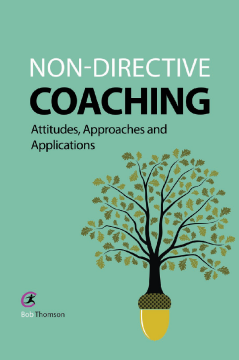
Additional Information
Book Details
Abstract
This is a key text for both practitioners and those on postgraduate coaching courses. It considers how coaches working primarily non-directively can develop their practice by assimilating ideas from a range of approaches. It also looks at how they might apply their non-directive coaching skills in a number of other fields. The text acknowledges that there is no single way to coach effectively and that it is impossible to be totally non-directive as a coach. However, it promotes the need for a coach to be very clear about how directive or non-directive they wish to be, both in their overall approach and as they decide in the moment what to say or do next in a coaching conversation.
Bob Thomson has worked in management development since 1988. He is a Learning and Development Adviser at the University of Warwick and was previously Leadership Development Manager at National Grid Transco. In his current role he runs the Warwick Leadership Programme, facilitates workshops and departmental away days, and leads the University’s Certificate in Coaching and Mentoring and Diploma in Coaching. He acts as an internal coach, supervisor and mediator, and has a small private practice in these fields. Before moving into management development he worked as an economist for eleven years with British Steel and ICI. Bob has degrees in Maths, in Economics and in Management Learning. He also has Certificates in Counselling, Coaching, Supervision, and Mediation.
Non-directive Coaching provides a clear outline of what non-directive coaching is and how it can be used to develop and support others. The emphasis of the text is clearly focused on how coaching helps to enable others. Guidance is provided on how to use questioning and listening more effectively to guide learners to explore their own practice in depth with the aim to discover ways forward and refine their practice. What is fantastic about this book is that it also explores the value of silence and thinking time to enable the learner to reflect on practice and explore their own solutions. Strategies are explored and a direct link is made to how coaching can be used to develop others. It is a theory rich, compact read, exploring a wide range of important issues, with a clear focus on the application and how to help others. The text is extremely helpful for both the new and experienced subject/phase tutor and mentor who is keen to continue to develop and support their trainees to the best of their ability.
Lizana Oberholzer, NASBTT
